Restoring dignity with scissors and heart: Richard Cornish brings free salon care to patients and families in crisis
The Philadelphia hairstylist founded Restore Salon Services to offer no-cost haircuts in hospitals and health centers— creating moments of normalcy when families need it most.
Listen 5:26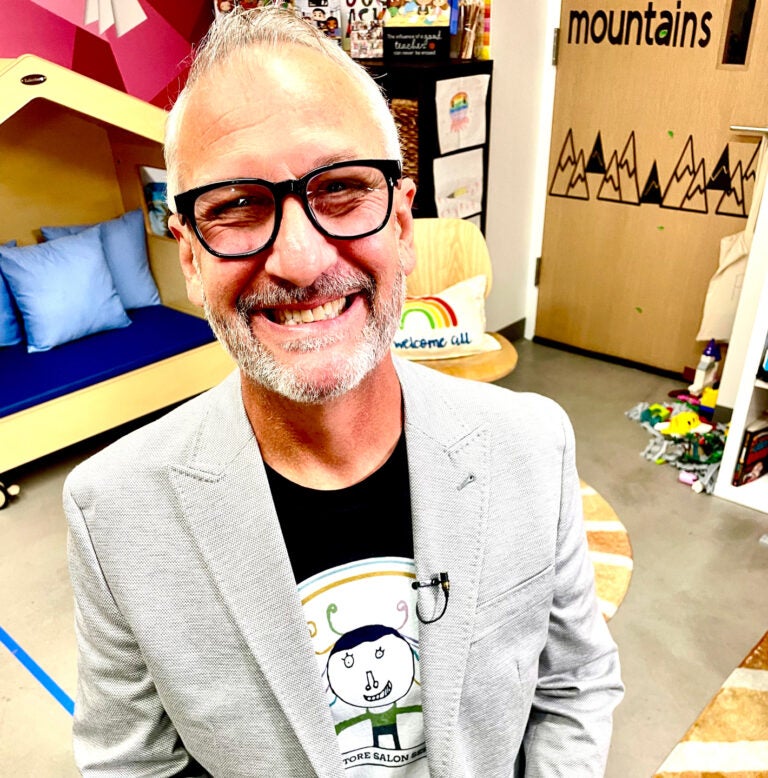
Richard Cornish founded Restore Salon Services in 2020. Photo by Cherri Gregg.
When a hospital room becomes home, self-care often becomes a luxury. Tubes, monitors, blood-pressure cuffs — they all take precedence over everything else. Salon stylist Richard Cornish understands that.
“When… anybody goes into a hospital, I feel like their outward appearance takes a backseat to what’s most important,” he said. “Because in those moments, what’s most important is healing.”
Cornish is the founder of Restore Salon Services, a Philadelphia-based nonprofit that offers no-cost haircuts and styling to individuals and their loved ones facing medical crises.
A mission born from compassion
The idea took root while Cornish was volunteering at the Children’s Hospital of Philadelphia.
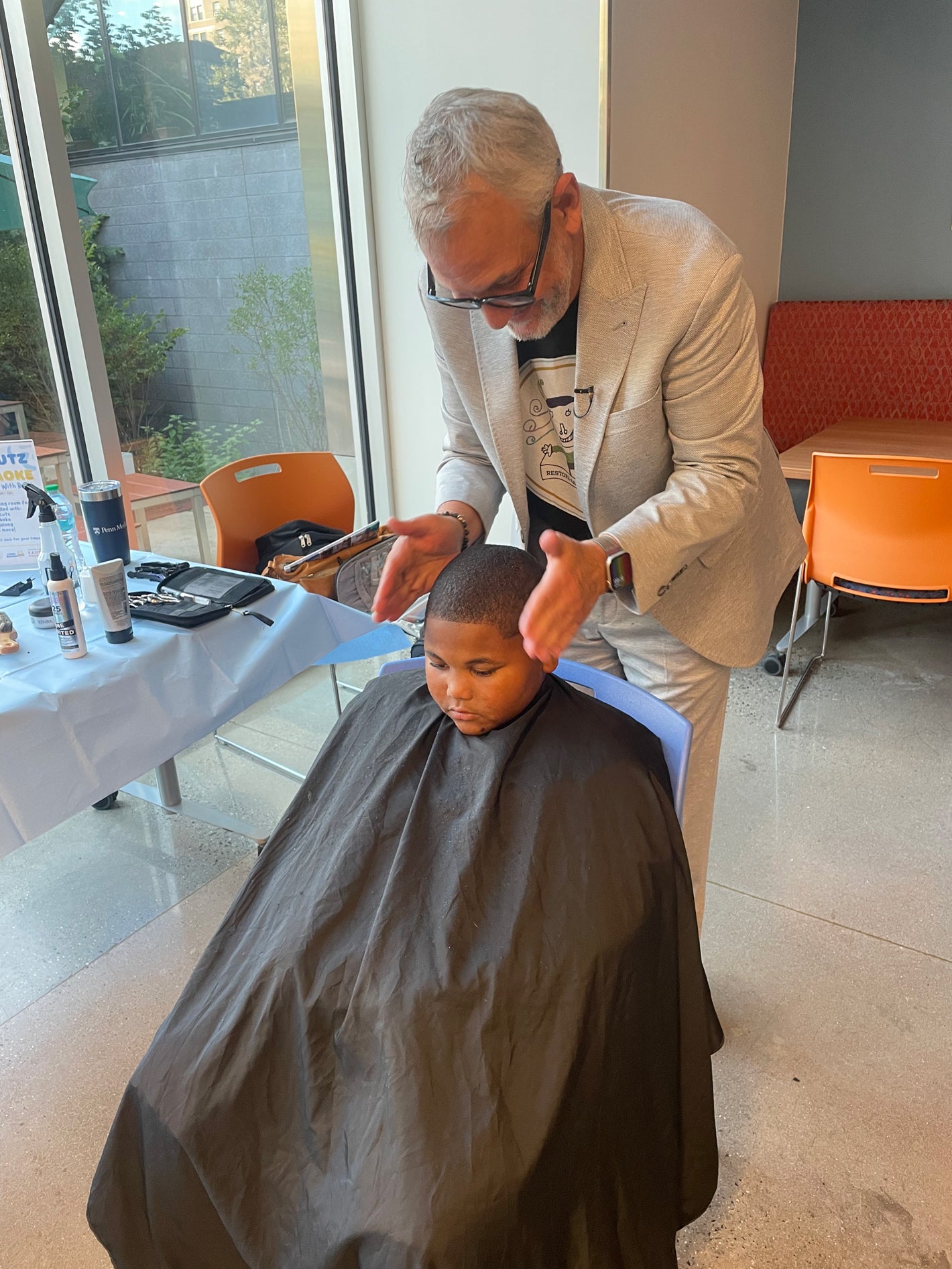
“I was the very first stylist that the Children’s Hospital of Philadelphia ever hired,” he said, “So I am ‘the mastermind,’ if you will, behind their program, Salon Services.”
When he left CHOP, he found he couldn’t walk away from the work. In 2020, he launched Restore Salon Services. The pandemic initially slowed things down, but it gained momentum in 2021. What drew him wasn’t just the craft — it was the transformation he saw happening in the chair.
“The interactions were so profound and meaningful and unexpected that it was just magic,” he said. “I would leave a volunteer shift feeling like I had changed the trajectory of someone’s day.”
The experiences reframed his view of his work and profession: “It really made me realize how powerful being a hairstylist is.”
A growing team, one patient at a time
Today, Cornish and a team of about seven volunteer stylists carry the feel-good magic into care settings across the region.
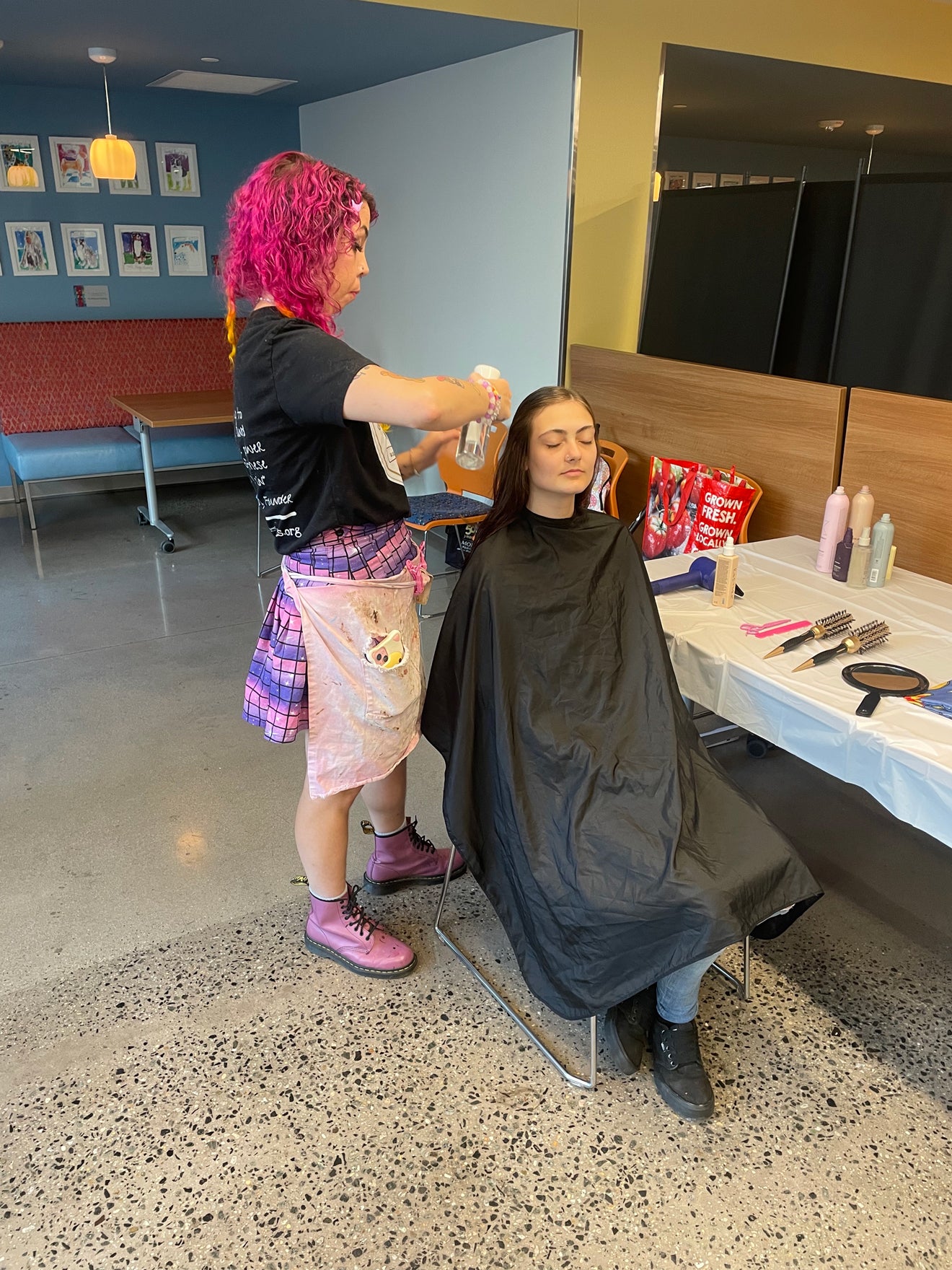
They visit Jefferson Moss-Magee’s Elkins Park campus, the Hospital of the University of Pennsylvania, and Ronald McDonald House Charities of Philadelphia, as well as Ronald McDonald House in Cincinnati, Ohio. For the people they meet, the chair offers a window of relief.
“They just get a reprieve from the machines and the nurses and the needles and the blood pressure,” Cornish said. “For maybe 30-45 minutes, they’re focused on having a conversation about how they want their hair cut.”
And when the cape comes off, there’s a lift you can see.
A different kind of salon
Cornish is quick to note that the work is different from salon life — and that’s the point.
“When I’m at the salon, it’s a very different experience for me than it is when I am doing it through Restore,” he explains.
“At the salon, there’s a standard and an expectation that the guest comes in with,” he said.
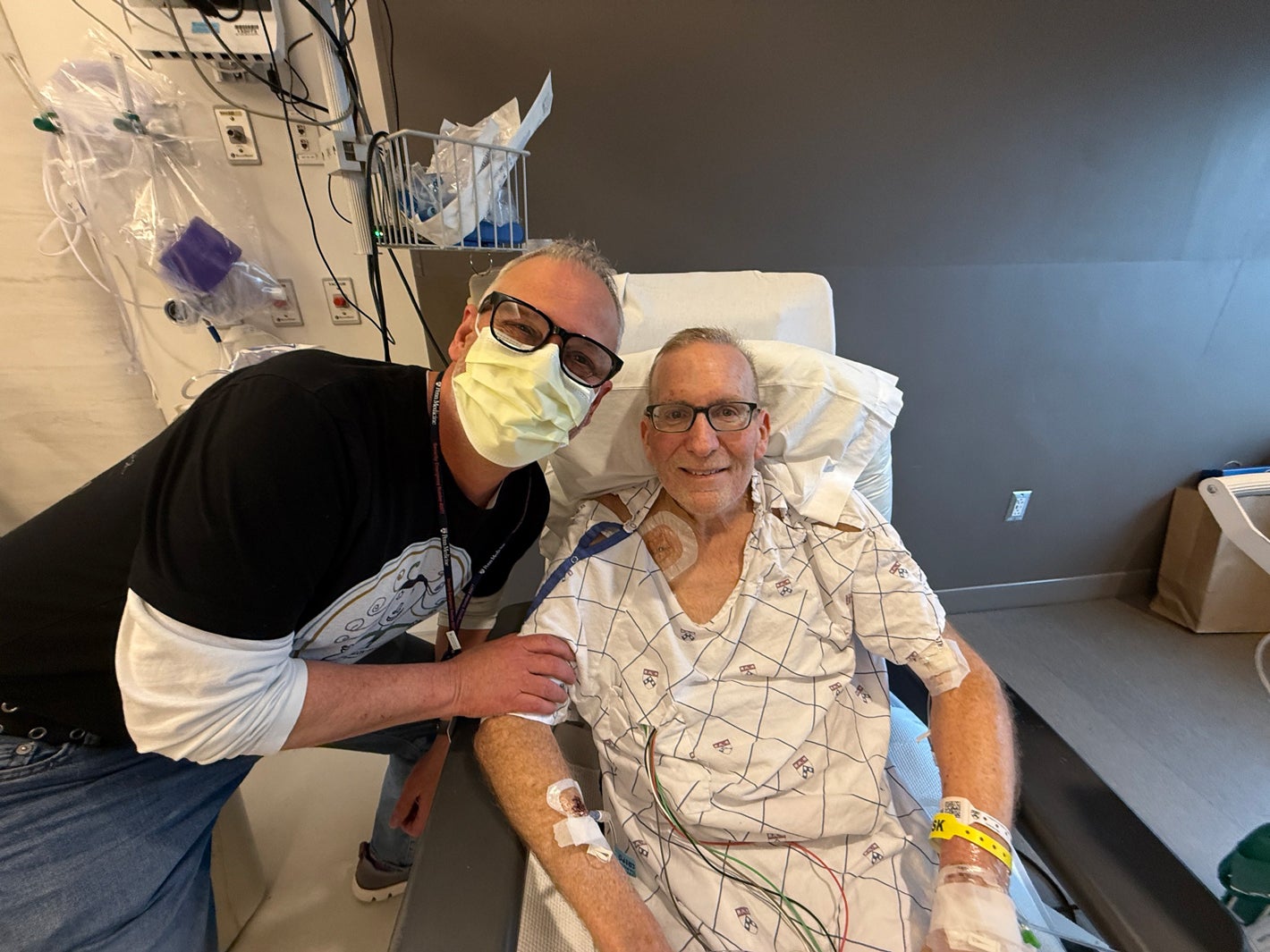
But in hospitals, gratitude replaces expectation. And for Cornish, touching hair isn’t work, it is an act of care.
“I feel like what I get to do is a gift,” he said. “I get to touch people’s heads, I get to touch their hair. I get to counsel them on the way that they look.”
Healing beyond the patient
At Philadelphia’s Ronald McDonald House Charities, families traveling for care find that gift waiting. Grace Garland’s 9-year-old daughter, Juliana, has a chronic pain disorder and spent five weeks at CHOP.
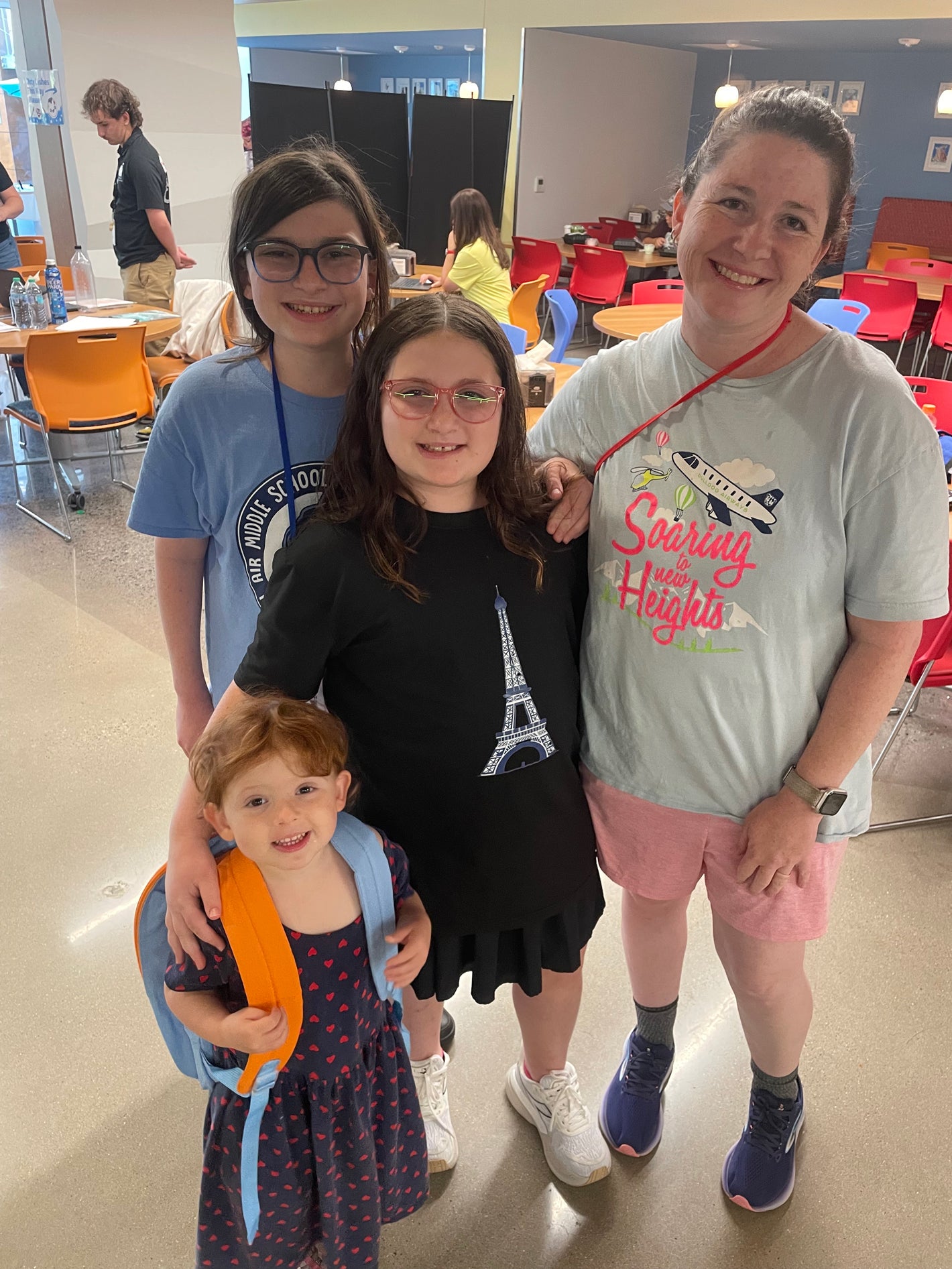
“It was just so beautiful, because she was so excited for this all day when we were at the hospital,” Garland said. “She was looking forward to this and karaoke. So it definitely got her mind off of things.”
Volunteers from Retore Salon took part in a Kuts and Karaoke Night.
“I just think it’s so nice that they come out here and do this and make the kids feel special and get their mind off all the medical stuff,” she said.
The practical benefits matter, too. The free haircut meant that Garland didn’t have to arrange for family or back-to-school grooming. Plus, it saves the family money at a time when resources are stretched thin.
“I mean, I’m looking at her haircut now,” Grace said. “It looks like one of the best cuts she’s ever gotten and she clicked with him right away.”
Restore’s care extends to caregivers as well. They take care of everyone within a patient’s circle of care.
“That is probably the most important work that we do for those families,” Cornish said. “Now they don’t have to leave their child in the hospital or at a facility; they can get their hair done for free on one of our styling days.”
Grace under pressure
The work is tender — and often heavy.
“I try to go into every hospital room… being as vulnerable as I can be, and being as open to hearing the person,” Cornish said.
But he maintains one firm boundary. Cornish said he never forgets a face, but he doesn’t stay in touch with clients.
“I would be too invested,” he explains, noting that he often hears about patients’ outcomes through staff. For him to actively follow up for everyone would simply be too much of a burden to carry.
So Cornish says he focuses on being present, offering care and grace in the moment.
“I just try to meet them where they are and make it entirely about the patient — it’s not about me,” he said.
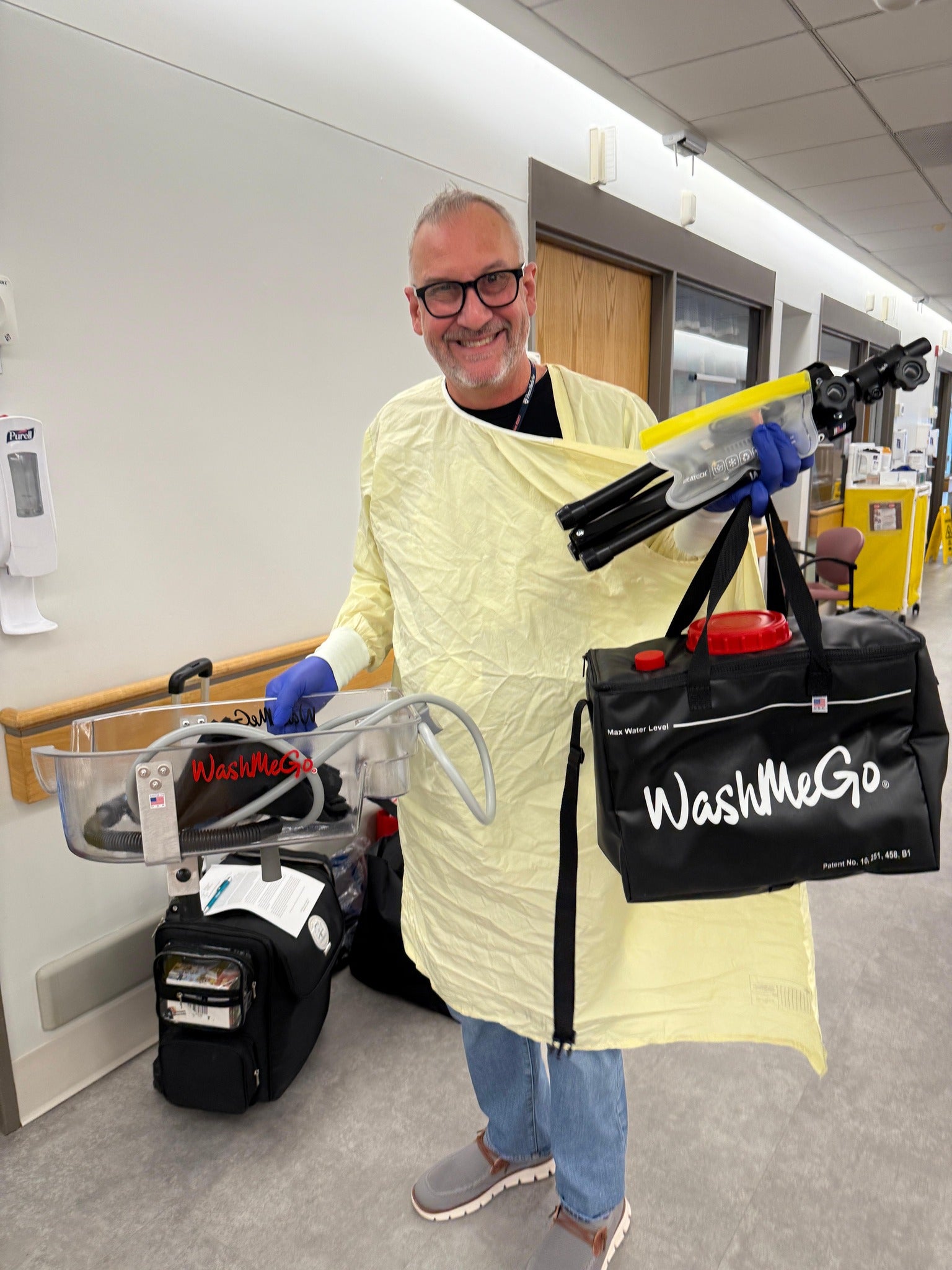
Still, particular moments stay with him — like the little boy whose family wanted a final haircut. Cornish agreed to make it happen. The cut became a ritual of love.
“To just be invited into that unbelievably horrifying moment with that family, but what it did for them was let them know they had done everything that they could for their young guy,” he recalls. “And they sent him home looking the best that he could look…and those are the moments that make it all worthwhile.”
Restoring hope — one cut at a time
Restore runs on an ethos of love and care, and relies on volunteers who share this sentiment. “These stylists are really remarkable and I think they see the magic that they provide,” Cornish said.
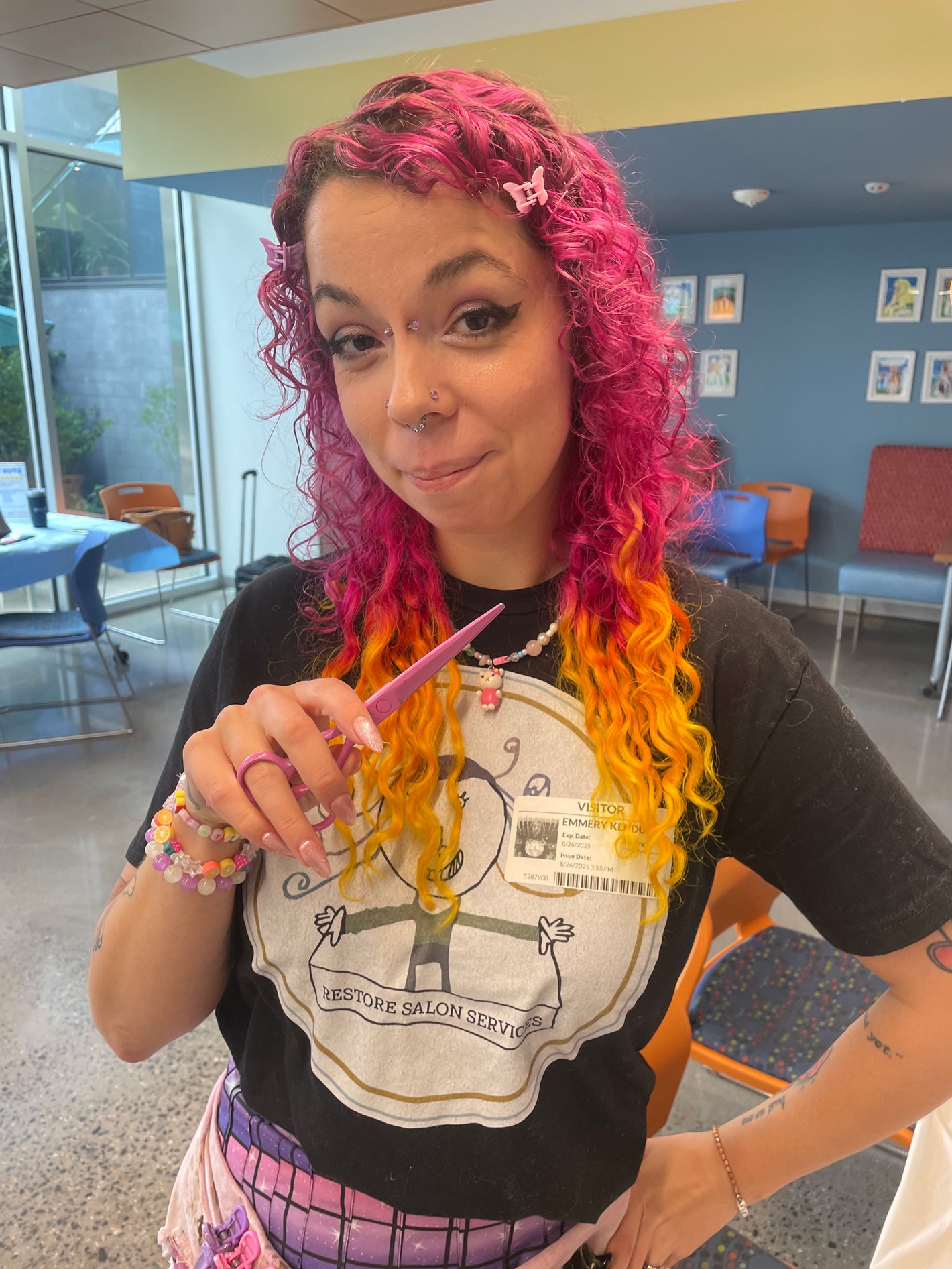
Volunteer stylist Emmery Purfield got involved with Restore through her mentor, who also volunteers with the organization. Purfield said her work is a gift to patients going through a hard time.
“Human touch is really important and sometimes getting that break and being able to get your hair done in the midst of chaos is really healing for people.” she said.“They’re not being picky or showing me a specific picture. They’re just happy to be getting that break and to have some sort of service done.”
From small-town roots to a big-hearted mission
Cornish’s path to this calling began far from Philadelphia. He grew up in Oklahoma, in a very small town called Luther.
“[I left] as soon as possible,” he said. “I graduated from high school and moved in with my best friend and her mom. They were living in Independence, Missouri. That’s where I started cosmetology school. And my best friend’s mother got a job offer up here in Philadelphia and asked if I wanted to come with her. I’ve been here since I was 19.”
Nominees poured in for Cornish’s Good Souls recognition. He’s grateful.
“I’m very humbled by that. I’m grateful for that,” he said. “It makes me feel all warm and fuzzy on the inside. It makes me feel like I’m doing something right.”
Donald D. Moore, one of the nominators, put it plainly: “A haircut…can be transformative.”

For Moore, what defines a good soul is simple: “Someone that just gives of themselves, regardless of the cost or the sacrifice that they have to make, they genuinely, from a very authentic place, freely give so that other people can be better.”
Of Cornish, he adds, “he’s a good soul because even when there weren’t any cameras, he was showing up.”
A vision that keeps growing
Cornish estimates that Restore has touched about 1,500 heads and is still growing. I think that Restore can be in every hospital across the country,” he said.
“My personal vision is to be in every single Ronald McDonald house in the country, to be in every single hospital across the country.” Cornish reiterates.
Looking back, he’s proud of how far the scissors have traveled. “So I think what we’ve done in these four short years is nothing short of a miracle. And I’m excited to see what the next four years hold.”
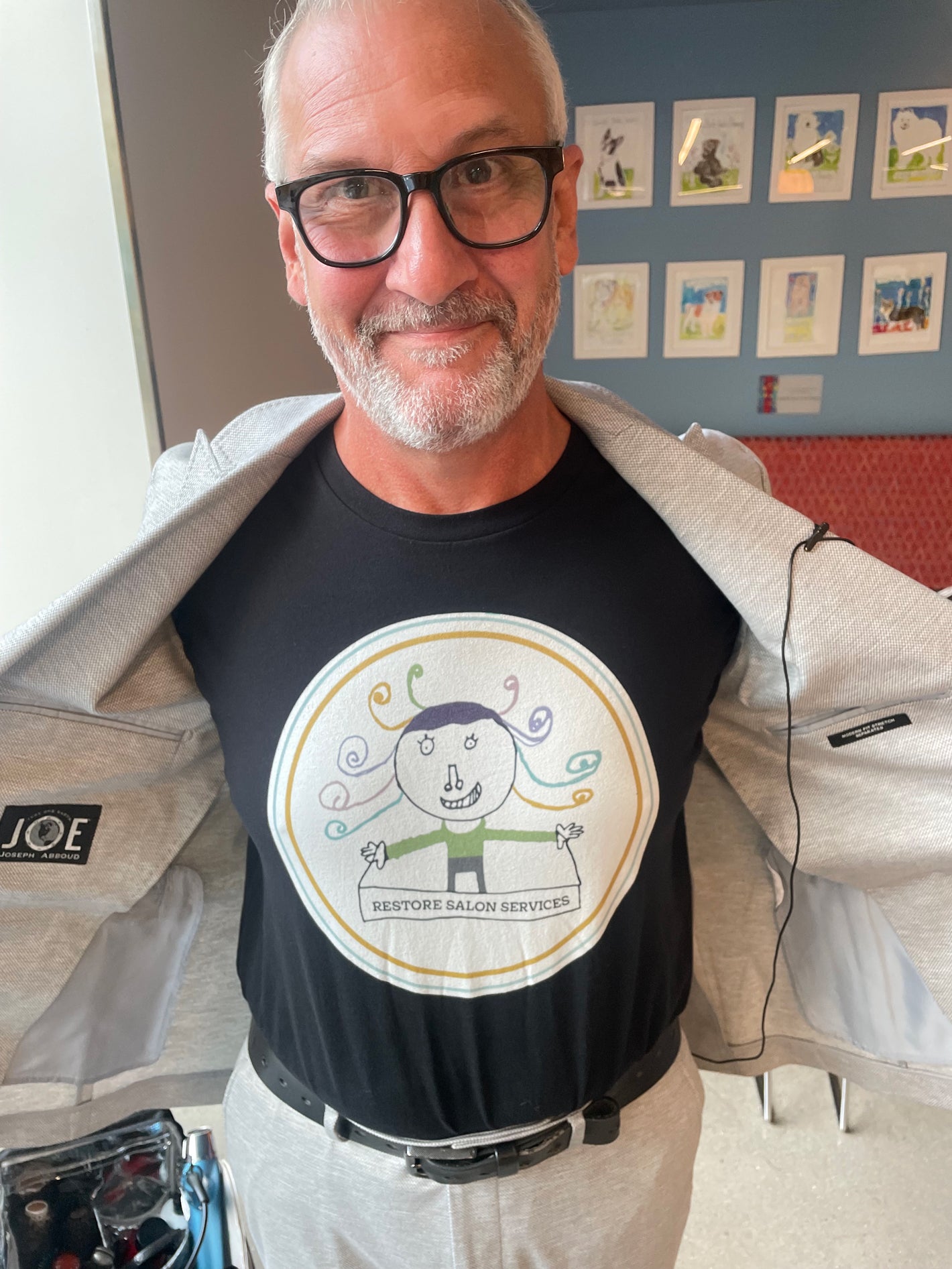
Ask him what “Good Soul” means, and Cornish doesn’t hesitate.
“What comes to mind when I hear Good Soul is people doing good for other people, right? People uplifting other people.We all need a little uplifting sometimes, myself included,” he said.
In hospital rooms and family lounges across the city, that uplift looks like a cape, a comb, and a conversation — and the moment someone looks in the mirror and recognizes themselves again.
“When you give them the mirror, and you see the light come back into this person, he said. “It’s actually quite amazing to see.”
WHYY is your source for fact-based, in-depth journalism and information. As a nonprofit organization, we rely on financial support from readers like you. Please give today.




